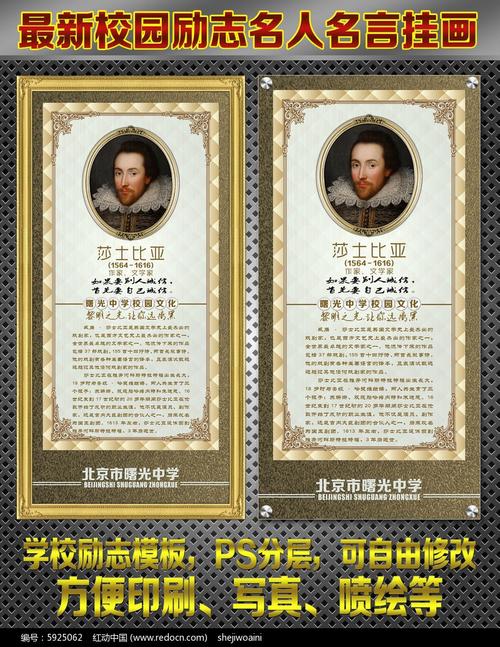2023年12月21日发(作者:美丽校园作文)

Unit12 Don’t eat in class.
一.短语.
1. in class 在课上 2. on school nights 在上学的晚上
3. school rules 校规 4. no talking 禁止交谈
5. listen to music 听音乐 6. have to 不得不
7. take my dog for a walk 带狗去散步 8. eat outside 在外面吃饭
9. in the hallway 在走廊上 10. wear a uniform 穿制服
11. arrive late for class 上学迟到 12. after school 放学后
13. practice the guitar 练习弹吉它 14. in the cafeteria 在自助食堂里
15. meet my friends 和我朋友见面 16. by ten o'clock.十点之前
17. be in bed 在床上 18. the Children's Palace 少年宫
19. help my mom make dinner 帮助我妈做饭
二重点句子:
1. 肯定祈使句:(1) 实义动词原形+其他; 否定的祈使句:(1) Don’t+实义动词+原形;
(2) be动词原形+形容词+其他; (2) Don’t be+形容词+其他;
(3) Let sb do sth. (3) Don’t let sb do sth
(4) No+Ving.
练:(1) My mother said to me, “Tom, _______ in bed.”
A. not read B. doesn’t read C. don’t read D. didn’t read
(2) Don’t __________ (fight). = No __________ (fight).
2. 不要迟到:Don’t arrive late. = Don’t be late. (arrive = be)
上课/上学不要迟到:Don’t arrive (be) late for class/school.
3. 主语省略(无主语):Don’t arrive late for class.
主语不省略(有主语):We can’t arrive ;ate for class.
4. 在学校我们必须穿校服:We have to wear uniforms at school.
句型:不得不/必须做某事:have to do sth 否定:不必做某事:don’t have to do sth
穿校服:单数:wear a uniform 复数:wear uniforms
练:(1) – I can’t stop smoking, doctor. – For your health, I’m afraid you ______.
A. can B. may C. must D. have to
5. 在我家里有太多的规矩:I have too many rules in my hou.
词组:太多…:too many…
6. 我从来没有任何快乐:I never have any fun.
(never译为“从来没有”,表示否定,否定句中表示“任何,一些”,用any)
7. 不要大声说话:Don’t talk loudly.
请大声说:Speak loudly, plea.
8. 他擅长于唱歌:He is good at singing.
句型:擅长于做某事:be good at doing sth
9. 表示“地点”的词组:
(1) 在教室里:in the classroom 在课堂上:in class
1
(2) 在走廊上:in the hallways 在学校里:at school = in school
10. 表示“时间”的词组:
(1) 下课后:after class 放学后:after school
(2) 在上学的白天/晚上:on school days/nights 比较:at night
(3) 到晚上10点钟之前:by 10 o’
11. (1) with 和; 如:He lives in Beijing with my parents. (不能用and)
(2) with 戴着; 如:Do you know the fat man with a hat? (不能用wears)
(3) with 有着; 如:It’s an old hou with a beautiful garden. (不能用has)
三. 重难点解析:
1. 情态动词have to 的用法,意思是"必须、不得不",它侧重于客观上的必要和外界的权威。(1)结构:主语+have to+动词原形+其他
(一般现在时,主语是第三人称单数时,用has to;句子是过去时,用had to.)如:
We have to wear sneakers for gym class. 在体育课上,我们必须穿运动鞋。Tom has to practice the guitar every day. 汤姆每天必须练习弹吉它。I had to get up at 5:00 am last Monday. 上周一,我不得不早上5点起床。
(2)否定形式:主语+don't have to+动词原形+其他
(一般现在时,主语是第三人称单数时,用doesn't have to. 句子是过去时,用didn't have to)
如:Nick doesn't have to wear a uniform. 尼克不必穿制服。We didn't have to do our homework at once. 我们不必马上完成作业。
(3)疑问句:Do (Does或Did)+主语+have to +动词原形+其他
如:Do you have to stay at home on weekends? 周末你必须呆在家里吗?Yes, I do. / No, I don't.
是的,我必须。不,我不必。Did he have to go to bed by 11:00 last night? 昨晚,他不得不11点前上床睡觉吗?
2. 情态动词can的用法
(1)表示能力,"会""能"(在第一册中已经学习这种用法)
Can you play the guitar? 你会弹吉它吗?Judy can speak a little Chine. 朱蒂会说一点中文。I can dance and sing. 我能唱歌又能跳舞。
(2)表示允许、许可,"可以"、"能"(在这一课中新学的词义)
Can the students run in the hallways? 学生们可以在走廊上跑吗?We can eat outside. 我们可以在外面吃东西。Can I come in? 我能进来吗?
注意 同样是情态动词,can 和have to 的用法是有区别的,和大部分情态动词一样,can在否定句中,直接在can后加上not,在疑问句中,把can放到主语前面,并且没有人称和数的变化。
3. hear,listen和sound都有"听"的意思,但三者是有区别的。
(1)hear"听说",侧重于"听"的内容
I'm sorry to hear that you are ill. 听说你生病了,我很难过。
I never heard such an interesting story. 我从来没听过这么有趣的一个故事。
(2)listen"听"侧重于"听"这一动作。Listen to me carefully. 认真听我说。
The children like to listen to music. 孩子们喜欢听音乐。
(3)sound"听起来",它是系动词,后面接形容词等。That sounds great. 那听起来真不错。
It sounds like fun. 听起来挺有趣。
4. be in bed "在床上、卧床"in 和bed之间不能用冠词,bed也不用复数。
He is in bed for 10 years. 他卧床10年了。Dave has to be in bed early every night.大卫每晚必须
2
很早睡觉。
5. arrive late for 与be late for 意思相近,"迟到"Don't arrive (be)late for school. 上学别迟到。I arrived (was)late for the meeting yesterday. 我昨天开会迟到了。
6. No talking ! "禁止交谈!"no后面加上名词或动名词(doing)也表示不要做某事。与don't +do的用法相似。No wet umbrellas! / Don't put wet umbrellas here! 禁止放湿雨伞!
No food! Don't eat food here! 禁止吃食物!No smoking! Don't smoke here! 禁止吸烟!
7.语法(祈使句)
祈使句是用来表示请求、命令、叮嘱、号召或者劝告等的句子,这类句子的主语常是第二人称you,也就是听话者,因而you常省去了。祈使句的开头是动词原形。
如:Look out! 小心!Wait here for me! 在这等我!
Be sure to come here on time! 务必准时来到这里!
祈使句的否定形式多以do not(常缩写成don't)开头,再加上动词原形。
Don't arrive late for school. 上学别迟到。
Don't fight! 别打架!
Don't look out of the window. 不要向窗外看。
练习:
一. 单词变化(10分)
(复数)_________ e(反义词) _________ (单三)__________
4..get to (同义词)________ 5. late(反义词)________ (副词)________
(原形)__________ (反义词)________ (复数) __________
(形容词) _________
二.选择填空(20分)
( ) can eat in the cafeteria. But we _______ eat in the classroom.
. A. don’t B. didn’t C. can’t D. aren’t
( ) Jim goes ________ the classroom the teacher is having class.
A. to B. in C. out D. into
( )3.-_______ I take some photos in the hall? –No, you_________.
A. Can, needn’t B. Must, mustn’t C. Could, won’t D. May, mustn’t
( )’t forget________ me this evening.
A. to call B. call C. calls D. calling
( )’t talk ________ in the library.
A. loud B. loudly C. low D. lowly
( )6.I have _______ rules in my home. We have ________ homework to do today.
A. too many, too much B. too much , many too C. too many, much too D. much too, many too
( )7.-Can your brother swim? -________.
A. Yes, he can’t B. Yes, plea . C. No, he can’t D. Yes, he does
( )’s raining all day , so I ________ stay at home.
A. must B. have to C. must to D. can
( )’s never ________ class.
A. arrive B. late for C. arrive late D. late
( ) has to _______ by 10:00 o’clock.
A. be in bed B. is bed C. stay bed D. lie bed
三.用A.B.C.D.补全对话。 (5分)
3
A. You are lucky. B. Really? C. I can’t go out on school nights.
D. I have to stay at home. E. It’s too bad.
A: Can you go to the movies tonight, Emily?
B: No, I 1 .
A: Oh, I can’t, either. I want to go out, but 2 .
B: 3 . I have too many rules in my family.
A; Family rules? Like what?
B: I can’t play with my friends after school .A: 4 ?
B: Yeah, I have to go home by 5:30 and do my homework.
A: Oh, I do, too. And I have to practice playing the piano every day.
B: Do you have to wash your clothes?
A: Yes, I do. I think 5 .
四.(A)
Many years ago, in a small town, there lived a doctor. He was good
1 kind. He was always ready to help people. People always went to
him 2 they were ill.
Many years later, the doctor became old. He began to forget (忘记)things. People
3 afraid and did not go to e him.
The doctor asked,“Why does 4 come to me now?”
No one wanted to tell him why becau they did not want to make him sad. 5
they said,“Everybody is healthy(健康的) in the town now.”
( ) 1.A. and B. so C. or D. but
( ) 2.A. after B. where C. when D. and
( ) 3.A. was B. were C. is D. are
( ) 4.A. everybody B. anybody C. nobody D. somebody
( ) 5.A. As B. For C. Becau D. So
(B)
Last week, we 1 ten students 2 No. 3 Middle School what they
3 last weekend. 4 most kids, the weekend was fun. Ten kids did
5 or 6 . On Saturday afternoon, five kids went 7 , and three went to
the library. Two kids also played computer 8 . On Saturday evening, ven
kids watched a movie or 9 at home and watched TV. On Sunday, two kids
visited friends, nine kids cleaned 10 rooms, and five played sports.
( )1.A. asked B. asking C. ask D. asks
( )2. A. in B. at C. for C. of
( )3.A. doing B. does C. did D. do
( )4. A. On B. In C. To D. For
( )5.A. many homework B. houworks C. homeworks D. homework
( )6.A. study B. studied C. studying D. to study
( )7.A. shoping B. shop C. shopping D. shops
( )8.A. game B. games C. gameing D. gaming
( )9.A. stays B. staying C. to stay D. stayed
( )10.A. there B. his C. her D. their
4

本文发布于:2023-12-21 17:14:59,感谢您对本站的认可!
本文链接:https://www.wtabcd.cn/zhishi/a/1703150100122889.html
版权声明:本站内容均来自互联网,仅供演示用,请勿用于商业和其他非法用途。如果侵犯了您的权益请与我们联系,我们将在24小时内删除。
本文word下载地址:七下Unit12 Don't eat in class复习及练习.doc
本文 PDF 下载地址:七下Unit12 Don't eat in class复习及练习.pdf
| 留言与评论(共有 0 条评论) |